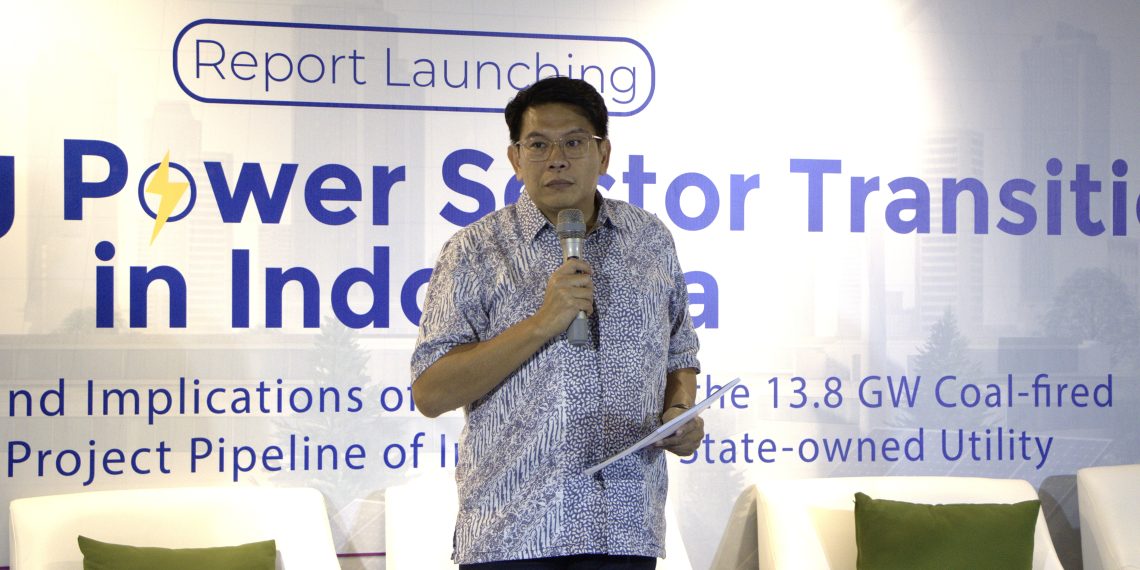Indonesia, an archipelago endowed with abundant natural resources, stands at a pivotal juncture in its energy landscape. The nation's commitment to transitioning from fossil fuels to renewable energy sources has been underscored by recent studies highlighting its vast potential. A notable contribution to this discourse is the Institute for Essential Services Reform's (IESR) study, which identifies 333 gigawatts (GW) of renewable energy projects as financially viable.
Indonesia's Renewable Energy Potential
The IESR's comprehensive analysis reveals that Indonesia's technical renewable energy potential exceeds 3,686 GW.
- This vast capacity encompasses various sources, including solar, wind, and hydropower. The study meticulously analyzed approximately 1,500 locations across the country, identifying 548.5 GW of technical potential. Of this, 333 GW has been deemed financially feasible, comprising:Ground-Mounted Solar Power Plants: 165.9 GW
- Onshore Wind Power Plants: 167.0 GW
- Hydropower Plants: 0.7 GW
This assessment underscores the country's capacity to harness renewable energy on a large scale, positioning it as a potential leader in sustainable energy within the region.
Financial Feasibility and Economic Implications
The financial viability of these projects was assessed using the Equity Internal Rate of Return (EIRR), a critical metric for investors. Projects with an EIRR surpassing the Weighted Average Cost of Capital (WACC), assumed to be 6.96%, were considered feasible.
This rigorous financial modeling ensures that the identified projects are not only technically sound but also economically attractive, offering promising returns on investment.Embracing these renewable energy projects could yield substantial economic benefits for Indonesia, including:
- Job Creation: The development and operation of renewable energy installations are labor-intensive, potentially generating employment opportunities across various sectors.
- Energy Independence: Reducing reliance on imported fossil fuels can enhance national energy security and stabilize energy prices.
- Environmental Sustainability: Transitioning to renewable energy sources aligns with global efforts to mitigate climate change by reducing greenhouse gas emissions.
Strategic Steps Towards Renewable Energy Adoption
To capitalize on this potential, Indonesia must undertake several strategic initiatives:
- Policy Reforms: Implementing supportive policies, such as incentives for renewable energy investments and streamlined permitting processes, is crucial. Recent developments indicate a move towards easing local content regulations to attract foreign investment.
- Infrastructure Development: Investing in modernizing the national grid to accommodate variable renewable energy sources is essential. This includes developing smart grids and energy storage solutions to ensure reliability.
- Financial Mechanisms: Establishing favorable financing options, including green bonds and public-private partnerships, can lower the financial barriers to entry for renewable energy projects.
- Capacity Building: Enhancing technical expertise through training programs and educational initiatives will ensure a skilled workforce capable of supporting the renewable energy sector.
- Community Engagement: Involving local communities in project planning and development fosters acceptance and addresses potential social and environmental concerns.
Challenges and Considerations
Despite the promising potential, several challenges must be addressed to realize these renewable energy projects:
- Regulatory Hurdles: Complex regulations and bureaucratic processes can impede project development. Simplifying these procedures is vital to expedite implementation.
- Financing Constraints: Securing adequate funding, particularly for large-scale projects, remains a significant challenge. Innovative financing models and international collaborations are necessary to bridge this gap.
- Technical Limitations: Integrating a high proportion of renewable energy into the existing grid requires advanced technologies and robust infrastructure to manage intermittency and ensure stability.
Global Context and Indonesia's Commitment
Indonesia's renewable energy ambitions align with global trends towards sustainable development. The nation's commitment to reducing its carbon footprint is evident in its plans to phase out coal power plants within the next 15 years, aiming to replace them with over 75 GW of renewable energy capacity.
However, experts emphasize the need for comprehensive policy reforms and substantial investments to achieve these targets.Furthermore, Indonesia's President has called on developed nations to invest in the country's green economy, highlighting the vast renewable energy potential and the critical role of international support in facilitating the energy transition.
Conclusion
The IESR's identification of 333 GW of financially viable renewable energy projects marks a significant milestone in Indonesia's journey towards a sustainable energy future. By leveraging this potential, the country can achieve energy security, stimulate economic growth, and contribute to global climate change mitigation efforts. Realizing this vision necessitates concerted efforts from all stakeholders, including the government, private sector, and international community, to overcome challenges and unlock Indonesia's renewable energy potential.
Read More






 Wednesday, 25-02-26
Wednesday, 25-02-26







